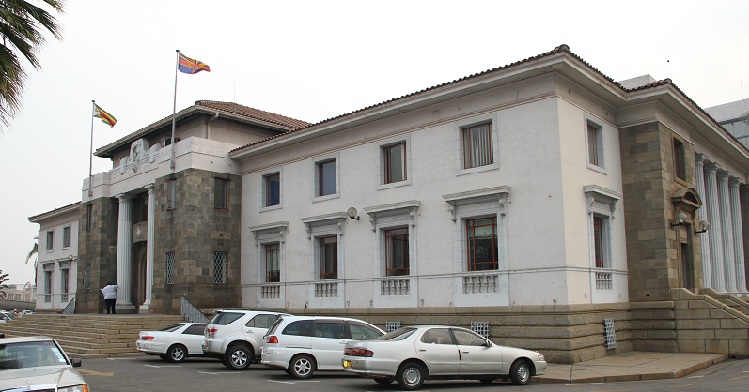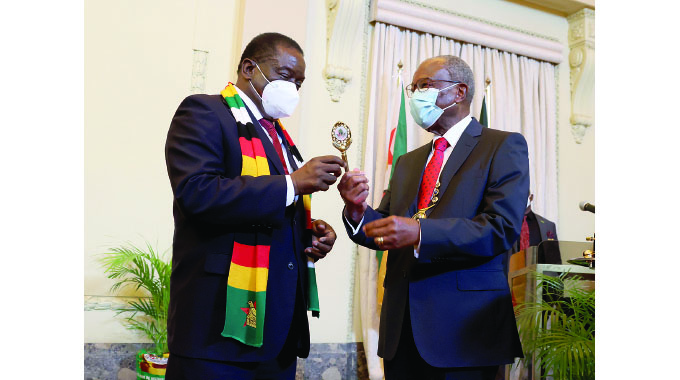Editorial Comment: Council accounting mess even worse than thought

The mess in Harare City Council appears to be worse than we thought with the council’s financial records being so incomplete that officials and councillors themselves are unable to say how quite large sums of money were spent, just what land is available for sale and how much water goes missing each day.
Auditor-General Mildred Chiri dug into the municipal accounts for 2020 as part of the routine work of her department, as everyone in private or public sectors has to have their accounts audited, and found slices of the accounts inadequate or simply not there.
On the inadequate side, there was a total of US$105 542 322 in trade and other payables that could not be verified. This is money the council spent, or was supposed to spend, and technically no one knew what for. The normal paperwork of quotes, invoices, delivery records and the required approval by the required officials or the council itself was simply not there, or not there in full.
Being unable to verify sending of US$105,5 million is flabbergasting. Even $1 would be bad, since a council is not spending its own money, but ratepayers’ money, but that sort of level of sloppy accounting or worse is exceptionally serious. It might just be incompetence, and for a good chunk that is probably the case. But that sort of accounting can also hide corruption, fraud and theft so there is more than just potential waste, there could be missing funds in someone’s pocket, or payments made to someone’s spouse without proper value given or any of the nightmares that should be running through the minds of ratepayers.
There was a total of another US$83 712 713 in accounts that had debit balances and should have been reclassified.
This implies that the council prepaid suppliers who never delivered, or overpaid suppliers who never gave back the money. Again the scale of the problem is horrific.
Who were these people who were possibly prepaid or overpaid? Just what is their relationship to the council or to individual councillors or officials?
Incompetence is one possibility and those who know the council must take that into account since Harare City Council cannot even collect garbage properly, a fairly simple operation. But again giving money way without value raises suspicions that at least some of it was worse than bad bookkeeping.
On the missing side, there was no inventory of developed land owned by the council, that is land with the roads, water and sewers in place.
We know there was some because charges have been laid in court that some of it was sold without the council going through the proper procedures, and other appears to have been sold after being re-designated or even sold to councillors as a perk. If the records wanted by the Auditor-General did exist, then we would know when the land was developed and so listed, when it was sold and to whom and for what price when it left the inventory and all the other details that are so useful.
The records should also include an inventory of council-owned undeveloped land suitable for development, which would have helped contain the land barons and council land unsuitable for development so everyone knew where it was and what it was intended for.
Even treated water needs to be recorded in an inventory, as it is something of value. This would change daily as more water was treated and more water pumped and more sold. But that record also does not exist and we get “estimates” of how much is lost before it reaches a meter and “estimates” of how much goes through meters because no one is recording meter readings and in any case some of the meters are broken.
This is basic accounting to allow the responsible officials to measure precisely what is going on, finding out where water goes missing and then doing something about it, with the council itself being able to look at the totals and take appropriate action. Accounts are not some airy fairy operation, but are there to give precise information.
The scariest upshot is that Parliament’s Public Accounts Committee has been battling since last year to find out if the required records are now being kept and if any attempt is being made to recover as much of the missing information as possible, as well as trying to find out if the council knows who it is paying and what it is getting in return.
Promises were made that by the end of last year the committee could see the results of any labour, but so far nothing. Even efforts to meet the council and discuss the matter have been aborted because the council, with its internal power struggles, is unable to achieve a quorum.
Part of the problem has been the inadequacy of so many councillors, a problem that the two last mayors who served a full term brought up more than once.
Those two mayors, although coming through the opposition system, were both professionals who could at least read a set of accounts but wanted a council where the majority could do likewise. The recent by-elections do not appear to have added to the number of financially literate councillors.
Harare’s officials are another group. Most departments are run by acting officials, sometimes the number four, after a lot of people were suspended while out on bail facing corruption-related charges. Having corrupt or financially illiterate councillors supervising possibly corrupt or incompetent or simply inadequately qualified officials does not ensure accountability.
There is a limit as to what central Government can do since municipalities legally have a wide range of devolved powers. Audits are compulsory, but the results are well after the fact, as with all audits, and a decent set of functioning accounts that can be used to manage a city day-to-day, week to week and month to month are simply missing.
That lack of data to manage the city is as critical as the fact that missing accounts can also open doors to hiding criminal activity. Proper accounts make management possible, not just easier, and we all know Harare City Council needs to upgrade its management.
And the same accounts should expose corrupt activity early, or if it is well hidden at least make it possible for the Auditor-General to track it down later. The law, and the relevant accounting standards, lay down precisely what records must be kept and how financial payments and other matters are to be authorised.
These must now be enforced and if present officials cannot keep these accounts they must be replaced, and if councillors cannot read the accounts or take action, they must be voted out and replaced by those who can.







Comments